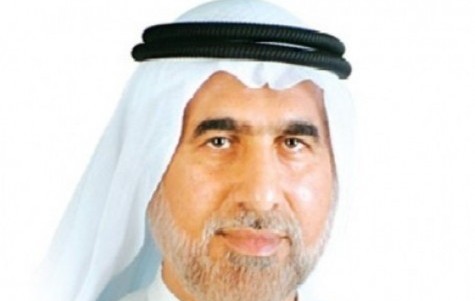Sultan bin Kayed al-Qasimi is a member of the ruling family of the Ras al-Khaimah emirate and a leader of al-Islah (The Reform), a political association in the UAE. On 20 April 2012, armed men dressed in civilian clothes entered al-Qasimi’s home and arrested him. According to his son Abdullah, the men took al-Qasimi to the palace of his cousin Saud bin Saqr al-Qasimi, the emir of Ras al-Khaimah. There, they held him under house arrest for at least five months.
On 10 March 2013, roughly a year after he was originally detained, the authorities transferred al-Qasimi to al-Razeen Prison in Abu Dhabi. That July, the Emirati Federal Supreme Court convicted him in a mass trial of 94 political activists known as the “UAE 94.” Many of the defendants in the trial were members of al-Islah. Analysts suggest the convictions were part of an “escalation of the government’s clampdown” on the group. The UAE has alleged that al-Islah “is influenced by the Muslim Brotherhood to oppose the western-oriented system of the UAE” and that it seeks to “overthrow the government.” Relatives of the imprisoned al-Islah members reject these accusations, arguing that “the charges were cooked up by authorities fearful of any call for change under a Gulf monarchy that bans all forms of political parties.”
During his detention, al-Qasimi reportedly experienced severe mistreatment and poor living conditions. According to GCHR, prison officials intermittently blindfolded al-Qasimi and subjected him to bright lights. They also allegedly deprived him of sleep, food, and drink. As a result of this abuse, al-Qasimi suffered from anorexia, weight loss, muscle weakness, short-term memory loss, high blood pressure, dementia, and immune system disorders.
Al-Qasimi is currently serving a ten-year prison sentence, despite concerns voiced by international human rights bodies and NGOs regarding his detention and trial. The United Nations Working Group on Arbitrary Detention noted that he was “detained without legal justification, and faced vague and imprecise charges.” The Gulf Center for Human Rights (GCHR) reported al-Qasimi was tortured in order to elicit a confession. His trial, which human rights groups have indicated included “flagrant flaws,” was also marred by due process violations.
The government’s treatment of al-Qasimi fails to meet international human rights standards. By subjecting al-Qasimi to poor living conditions during his detention, Emirati authorities violated the UN Convention against Torture and Other Cruel, Inhuman, or Degrading Treatment or Punishment. Moreover, the authorities denied al-Qasimi a fair trial and held him for at least a year without charge, failing to meet their international obligation to refrain from arbitrary detention. The Government of the UAE must release all prisoners that have been arbitrarily detained and convicted in unfair trials such as Sultan bin Kayed al-Qasimi.
Tyler Pry is an Advocacy Intern at ADHRB.





